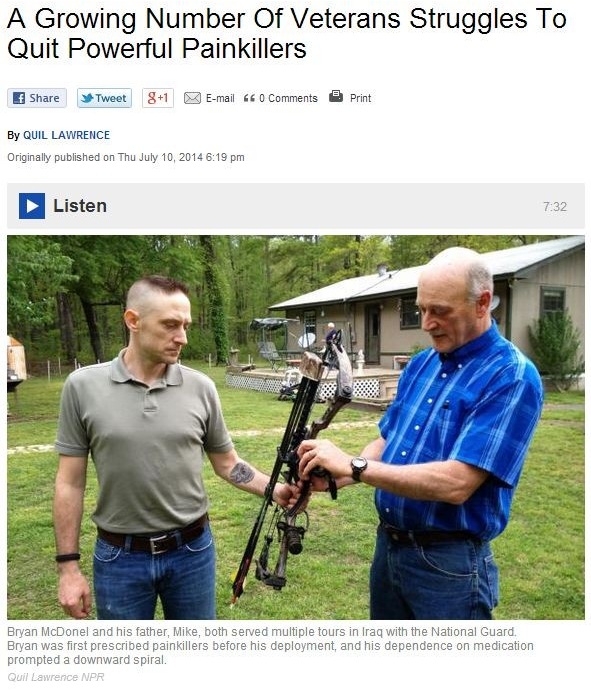Modern medicine provides doctors with a myriad of ways to manage pain and allow people to return to their activities and live relatively normal lives. However, sometimes, the management of pain can lead to other, much more difficult issues.
Due to the particularly painful injuries that combatants have to deal with, many of them are prescribed powerful opiate-based painkillers to help them manage, rather than treat, their pain. This is done so that they can be returned to the battlefield quicker, often without minding the possibility of reinjuring an injury that hasn’t fully healed.
Unfortunately, this has led to a rapid increase in the number of veterans dependent or addicted to prescription painkillers, as St. Louis Public Radio reporter Quil Lawrence discussed in a recent feature. The problem has caught the eyes of both the Veteran’s Affairs department and the Pentagon, which have both pointed out that this might be a contributing factor to the high incidence of homelessness and suicide among former service members.
While both military institutions have set out to find solutions that can help to reduce the number of service members becoming addicted to prescription medication by providing other treatments and only turning to opiate-based painkillers as a last resort, those that have already fallen victim to the problem and are no longer in the military are not quite so lucky.
Out of a job, and with some ejected on less-than-honorable discharges, life can be tough for these individuals—many of whom still suffer dependency or addiction symptoms on top of everything. Considering the fact that they put their life on the line in service of their country, no matter how you look at it, it’s a sad situation at best.
However, in lieu of support from the military, there are institutions that service members ejected for drug dependency or addiction can turn to for help. Centers like Midwest Institute for Addiction can provide a healthy and supportive place to join a program for drug rehab in St. Louis that will allow them to break their dependency on the drugs.
After the treatment for their dependency, veterans can also rely on the continued support of St. Louis drug rehab centers through aftercare and relapse prevention. This phase of the treatment should give them the skills to regain control of their life and once more become productive members of civilian society.
(Source: A Growing Number Of Veterans Struggles To Quit Powerful Painkillers, St. Louis Public Radio, July 10, 2014)










